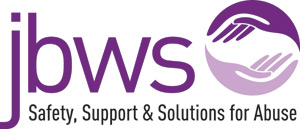I didn’t know a woman could be abusive.
I grew up acutely aware that a man could be abusive. I witnessed a man being abusive – his unpredictable behavior igniting my nervous system and leaving me in a constant suspension between fight or flight.
“Was my tone disrespectful?” “Did I pay enough attention to his story?” “What if he breaks through the door tonight?”
For decades, I watched how abuse manifested between a husband and wife. I saw how gender stereotypes and traditional family values were used as a means of power and control. Because I was so aware of these abusive dynamics, I swore that no one would ever abuse me.
The men I dated were kind, gentle, and loving. We had strong relationships built on friendship and trust. If they gave me even a moment’s pause, I would break off the relationship, favoring my own independence over a partner.
Then I realized that I liked girls.
Suddenly, it wasn’t as easy to break off romantic relationships. I cared more, I felt more, and I wanted more. Not only did dating women come naturally to me, it seemed to have the added benefit of making me immune to abuse. Since all my experience with it involved men, I didn’t think to look for the signs of it in women.
I didn’t even know a woman could be abusive until a woman abused me.
I met her on Halloween night, and we were madly in love by Thanksgiving. There was an intoxicating intensity between us that made every interaction feel elevated in some way. In a matter of weeks, I became such an integral piece of her life that she referred to me as “her angel” sent from heaven by her recently deceased family member.
With little access to healthy women-loving-women relationships in media and even less information about how abuse presents between two women, I didn’t know that these were red flags.
When she told me that a few of my friendships made her uncomfortable because she had been cheated on in the past, I thought I was being a good partner by pulling away from them. When she would get irrationally angry and make cruel comments to me, I thought accepting her apology was being considerate of the trauma she experienced when her family member died.
When she began asking me to pay for increasingly expensive costs of living, I couldn’t say no without accusations of falling out of love. When she would intentionally make me cry and then initiate sex, I didn’t realize it wasn’t to reestablish closeness. And when she told me that the debilitating anxiety I developed during our relationship made her love me less, I believed it.
Without JBWS, I never would have realized the depth of the abuse I experienced. The organization helped me recognize that her behaviors went far beyond “jerkish” tendencies. Reading about the numerous forms of abuse helped me realize those dynamics were present in my relationship.
The messaging about the prevalence of abuse among all people, including those who identify as members of the LGBTQIA+ community, helped me understand that the abuse I experienced was valid. Us both being women didn’t somehow lessen the severity of the abuse or make it “not as real.”
As challenging as it was to accept that I was in an abusive relationship, it helped me process my emotions in a way I had never done before. I realized my vow to “never be abused” placed the blame upon myself instead of the person choosing abuse. Fully acknowledging the abuse for what it was helped me begin to heal from a lifetime of domestic violence.
-A survivor reflection
Learn more about how abuse presents in LGBTQIA+ relationships here.
If you are in an unhealthy relationship, help is available call 1.877.R.U.ABUSED.
